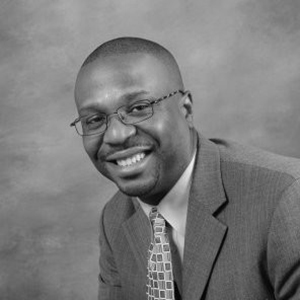
What is leadership?
It’s essential to every successful organization, but leadership carries different meaning to everyone, and manifests in ways many of us don’t consider. As part of Ripple Effect’s Leadership Month, we recently sat down with a few of our wonderful junior employees to learn about the qualities, practices, and traits that they admire in great leaders above them, both inside and outside of Ripple.
Meet Our Roundtable
Our interview featured junior Ripplers from all across capabilities, from communications to business development to project management. See yourself in any of our people? Inspired by something you read? Connect with them on LinkedIn—their bios are linked below.
Melissa Blum, Junior Communications Specialist – Digital Content
Regina Buachie, Program Evaluator
Ian Cohen, Business Development Specialist
Anna Crichton, Junior Graphic Designer
Autumn Jones, Project Support Coordinator
Natalie Mazur, Junior Communications Specialist and Graphic Designer
Langston Payne, Junior Communications Specialist – Events
The Questions
Welcome to the Roundtable! Let’s get right into it. What is the most important quality of a great leader? Why?
Melissa Blum: Openness and availability. In the past, I’ve worked in environments where I didn’t think I could go to my supervisor with questions because they didn’t care enough to give me the time of day. Knowing that my supervisor has their door open and cares about how I’m doing means the world to me.
Anna Crichton: Respect, because people are much more motivated and collaborative when they are treated respectfully.
Langston Payne: Patience. Everything doesn’t come easy, especially when you’re managing multiple tasks and people.
Natalie Mazur: The ability to teach. A leader must be able to coherently teach and explain their goals and mission with their followers, and empower them with knowledge.
Melissa: I like that!
Natalie: And this is maybe more a soft skill, but social skills. In order to inspire the people around you, gain their respect and move them forward, you have to be able to connect, read social situations, and connect.
Ian Cohen: Absolutely, on the social skills. Leaders have to understand and communicate effectively with the people they are leading.
Regina Buachie: Agreed! You need great communications skills this to motivate others and delegate responsibilities.
Autumn Jones: The ability to recognize strengths and weaknesses in your team and delegate tasks appropriately.
Who is a leader you look up to and admire? Why?
Anna: In college, I took several classes with a professor who was an exceptional leader. She had high standards for her students, but she was always helpful, supportive, and reasonable. She treated us with respect and genuinely wanted the best for us, which made it easy for us to respect her in return.
Regina: As a Ghanaian-American, I admire Ghana’s first president, Kwame Nkrumah because he steered Ghana’s independence from Britain and promoted Pan-Africanism.
Langston: My dad is a leader I look up to and admire. Through any adversity and hardships, he always stays calm and works hard. I try to implement his teachings into my everyday life.
Autumn: When I was in high school, I was an intern for a big insurance company (boring) that my dad had connections to, and since I had no interest in being a part of their finance department (double boring), I was assigned as the assistant to the head of HR. Initially, I anticipated the role to be just as lackluster, but my supervisor was the most amazing woman. She was a no-nonsense type of person in the office, but a beach-loving adventurer out of it.
Melissa: I can see why you’d get along…
Autumn: (Laughs) Yes! But she really taught me what it was to be a woman in an executive role and also a woman in an industry that was primarily men. She taught me about all of the struggles she faced getting to where she was and it truly inspired me to step out of my comfort zone and speak my mind when I disagree with something. I don’t think I would be the confident professional I am today without her!
Natalie: Similar answer here: My first boss. I admire her because she pushed me to grow into new fields I never pictured for myself before. She believed in me, therefore, she invested in me.
Melissa: During one of my summers in between years of college, I had a marketing internship with Hartman Design Group: an interior design firm in Rockville. My manager there showed me the true meaning of working hard, but having fun while doing it. We worked in a small room together, so we would close the door and listen to music all the time. We also would frequently go out to get lunch or a snack and would walk around the Rockville Town Center area to take a much needed 15-minute breather from the 8-hour workday. She showed me the qualities I will always want in a supervisor.
Ian: I couldn’t think of a good one for this, but just as an example of a quality I appreciate, I’m going to choose TJ Oshie (of Washington Capitals fame). He always seems to be willing to volunteer for community service projects. I appreciate that he’s self-aware about the fact that he can influence his community, and he sets an example for fans who look up to him, whether they are young kids or middle-aged men seeking out used player gear.
What have you learned about leadership since you came to Ripple Effect?
Regina: I’ve learned that leaders who are kind, humble, and approachable earn immense respect from their subordinates.
Anna: Definitely. Great leaders work as part of the team, rather than acting as if they are above the people they manage.
Natalie: That! Leadership is not something high-and-mighty, kept on a pedestal only for those at the top. Leadership is expected and encouraged from everyone at Ripple Effect, at all levels.
Ian: In my short time here, I’ve learned about Ripple’s culture of mentorship. Our leaders are transparent about company goals, what needs to be done to progress in a career or project, and increasing responsibilities over time to prepare junior employees for their next steps.
Melissa: I’ve learned that tag-ups with your supervisor are not just for when you do something wrong. At Ripple, everyone, even Division Directors (!), have tag-ups with their supervisors to talk through their work weeks. I think this allows people, junior staff especially, to see their supervisors as colleagues and collaborators, rather than people you’re always trying to impress and can never mess up around.
Autumn: I’ve learned to delegate tasks in a fair way. At first, it was really easy to try and do everything myself, but I soon found myself overwhelmed. I had plenty of people on my team who could help, but I initially had the mindset that I could accomplish it all without having to bother anyone. That obviously didn’t last very long. Eventually, I started to feel more comfortable assigning tasks to my team and trusting that they could thrive!
Langston: Leaders are still willing to learn. I believe it was our Content Development Team lead, Debbie McCarron, who spoke about during a comms meeting about how she continues to learn new tasks all the time, even from junior staff.
As you grow in your career and begin to manage people, what is one leadership strategy you’ll try to implement successfully?
Ian: Empowering the people I work with to take charge of their work, make suggestions, and understand their skills and how to improve them.
Regina: Having an open-door policy to be as accessible and approachable as possible to my subordinates, in order to foster great mentor relationships with them.
Melissa: I was reading Amanda Crinks’ LinkedIn article on lessons for young managers, and the tip of never giving someone work you wouldn’t do yourself really resonated with me. I remember getting thrown the “intern” work at previous jobs, like having to fold hundreds of t-shirts by myself at 6 AM, and it was very frustrating not being able to show my skills and prove myself.
Langston: Encouraging those I manage to be confident in their abilities, and not feel that they don’t have a voice or true value just because they’re junior.
Autumn: I want input from everyone on my team. I really value check-in meetings that I currently have with my team, and it’s a great place to ask questions and voice concerns relating to projects I’m working on. By receiving input from team members, it’s easier to mitigate conflict before it happens and balance workloads in a way that benefits both the individual and the final product.
What’s your favorite leadership quote? And why did you pick it?
Ian: “You miss 100% of the shots you don’t take.” – Wayne Gretzky (or Michael Scott)
A lot my successes in life have been built around taking an initial chance, and then learning along the way. So, the encouragement to start something new and take a big leap is the vital first step.
Anna: “A good leader inspires people to have confidence in the leader; a great leader inspires people to have confidence in themselves.” -Eleanor Roosevelt
I picked this quote because I think the best leaders are the ones who empower others.
Regina: I don’t have a favorite leadership quote, but I do like the phrase, “We face neither East nor West; We face forward” from Kwame Nkrumah. I like this because it emphasizes the forward-thinking attitude that’s necessary for progress and development.
Autumn: “If you want to know what a man’s like, take a good look at how he treats his inferiors, not his equals.” – Sirius Black
I really like this quote because it’s really all about the whole team, rather than one individual. A leader needs to recognize the work put in by the team and give credit where it is due. Too many times I’ve seen leaders or executives take credit for accomplishments junior employees have made, and it’s an immediate indicator of a bad leader and role model.
Natalie: “A boss has the title, a leader has the people.” – Simon Sinek
Melissa: That’s a great saying.
If you were CEO for a day, what would be your first order of business?
Natalie: If I were CEO for the day, I would organize a day of team-building activities that help people to break down walls, collaborate, brainstorm solutions, and create new channels of communication and camaraderie.
Anna: I would allow dogs in the office.
Melissa: I would make shoes optional. I already practice this, to be honest; I sit at my desk in socks 95% of the time.
Autumn: Dogs in the office.
Ian: Seconded on Anna’s suggestion about dogs.
RIPPLE EFFECT: Well, we’re seeing a trend here…
Regina: I would schedule a free social event during work hours to interact with all employees in a casual setting that allows for employees to take a break from their hard-work.
Langston: Everybody gets a day off. A day to rest and regather yourself. I believe everybody needs to be well mentally and physically while working on so many different projects, and random days off when the time is right would support that.
In an increasingly remote-work-friendly, virtually-connected world, how can one be a leader with less face-to-face contact?
Ian: Create a culture of trust, and set clear expectations. Communicate availability often, and set up regular check ins to update progress and help.
Regina: Encourage collaboration and acknowledge all ideas and efforts from those involved.
Langston: Listening and inspiring your team is how you can lead despite less face-to-face contact. Being able to instill confidence and reassurance.
Natalie: Focus on your communication. I think being online forces people to be more thorough, organized, and succinct when expressing needs and directions. I think you can be a great leader by being a great communicator, and making the time to check in on your people.
Autumn: Absolutely—keep open lines of communication. There’s more than one way to connect with people. Just because someone works remotely or is unavailable for face-to-face contact doesn’t mean they can’t participate and communicate in other ways. As a leader, all you need to do is be available and encourage other lines of communication.
Melissa: Skype or FaceTime! I don’t think phone calls and e-mails truly convey the same emotions as sitting down with someone and seeing their facial reactions and body language. When in-person meetings aren’t an option, quick video chats can be really helpful!
How do you plan to grow in your career?
Langston: Continue to learn new skills in writing, event planning, and anything else where help is needed. I’m excited to pursue a master’s degree for myself. I want to dive deeper into the communications field, as well as graphic design, to be more well-rounded in my skill set.
Autumn: I hope to be able to build my team and implement some of these strategies like check-in meetings and delegating more complex tasks. I’m excited to pursue larger projects with bigger teams and get creative with how I collaborate with others. Here at Ripple, it’s amazing to have so many team members willing to help and I want to carry that on when I eventually have my own teams to lead.
Ian: Learn as much as possible about my role and the industry Ripple Effect is in, and then supplement that knowledge with classes and certifications that strengthen career opportunities.
Melissa: I want to grow into a bigger role as a Creative Strategist. I’m someone whose brain never shuts off, so even when I’m trying to go to sleep at night, I’m thinking of new and interesting ways to present things. Getting to hone this craft and implement these ideas into actual work would make me extremely happy!
Anna: I still don’t know exactly what I want to do in the future, but I’m looking forward to expanding my skills by taking on new clients, projects, and learning new design programs and theories.
Natalie: I’m most excited to continue learning and challenging myself with new roles on new projects. I want to be not only a project manager, but a successful one at that.
That’s all! Thanks so much for sitting down with us and sharing your stories.
We hope you found this Roundtable fun, engaging, and helpful. Please comment with any questions you have, and if you see yourself as a leader and future Rippler, please visit our Careers page and apply for an open position. We’ll see you next time!









































